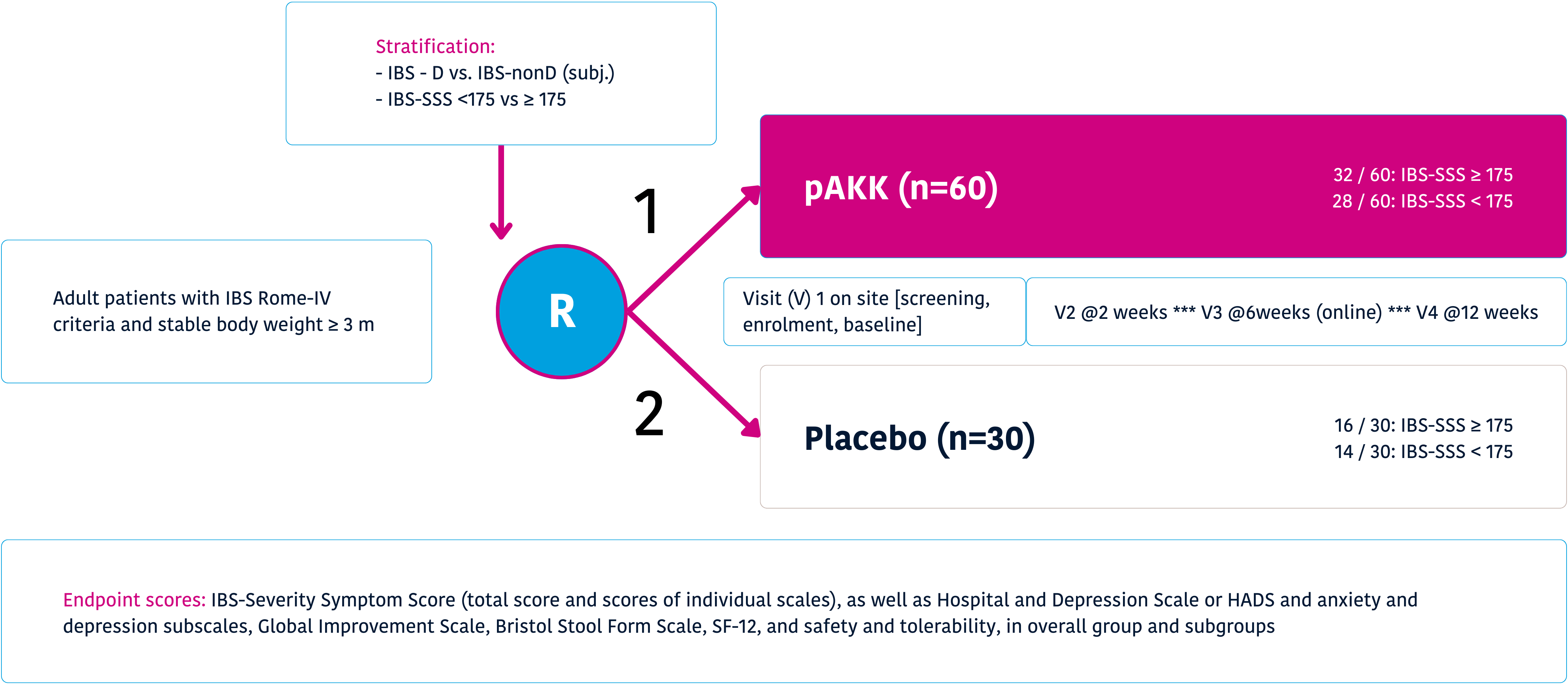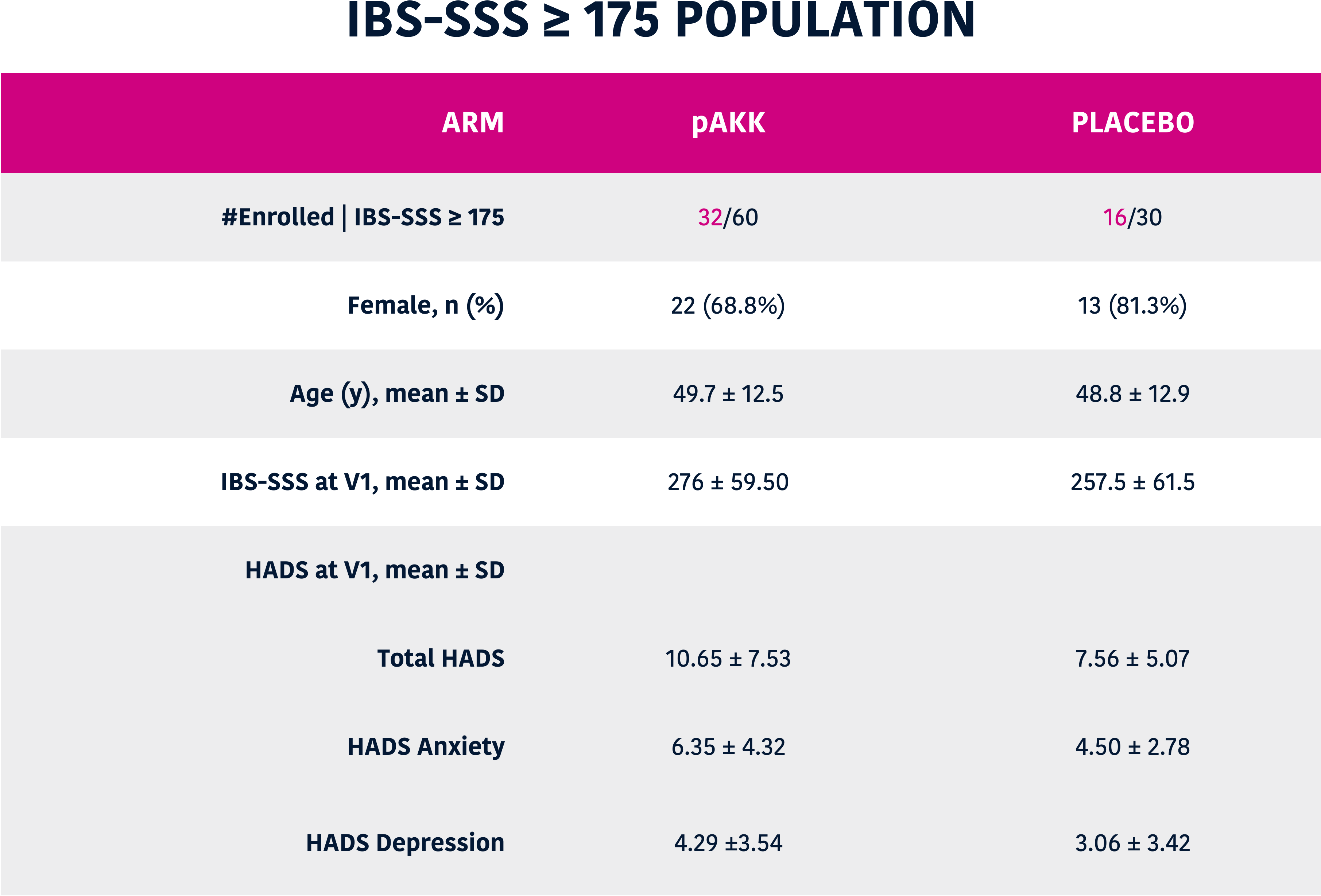IBS Study
Study to determine whether pasteurised Akkermansia muciniphila improves bowel and psychological symptoms in subjects with Irritable Bowel Syndrome
Overview
Irritable bowel syndrome (IBS) is a disorder of gut-brain interaction (DGBI) characterised by recurrent abdominal pain and abnormal bowel habits. Akkermansia muciniphila is a next generation beneficial microbe. In both live and pasteurised form (pAKK) it is shown to improve gut barrier function. 1
Main objectives
Explore the impact of pasteurised Akkermansia muciniphila (pAKK) on IBS symptoms and psychological distress symptoms in subjects with IBS-SSS ≥175.
Methods

To learn more about the Rome IV Criteria, click here.
What were the results?
- Excellent tolerance and safety profile.
- Clinically meaningful improvements in IBS-SSS in both arms in this mostly moderate IBS population, with slightly deeper response in absolute values by pAKK, and also reflecting an important placebo effect.
- The placebo effect was dominant in the subjects with a lower IBS-SSS score at baseline. The higher the initial IBS-SSS value, the bigger the clinical effect by pAKK, with statistical tendency to be different from placebo.
- Psychological parameters slightly improve in the pAKK arm while worsening in the placebo arm (statistically non-significant).





Key Takeaway
REFERENCES
1 (REF 1) Plovier et al Nat Med 2017; Depommier et al Nat Med 2019) – pAKK also modulates the gut-brain axis (Abot et al Heliyon 2023).